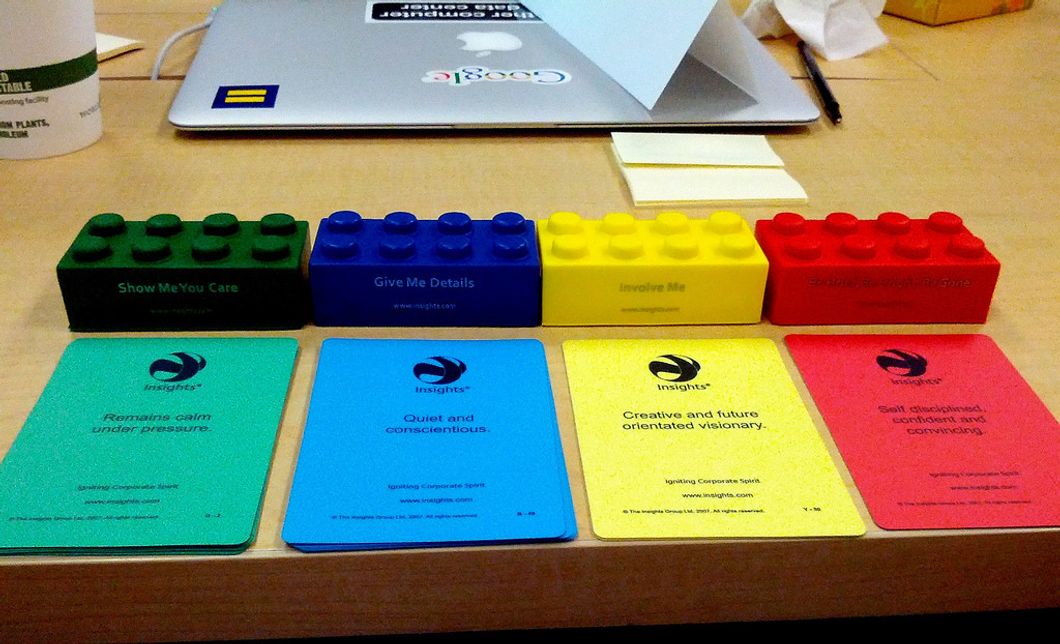When I first figured out my personality type according to the Myers-Briggs Type Indicator, INFJ, it explained so many things, especially why some of my thought processes work the way they do and a part of why I am the way I am. I finally felt like I was normal, like there were other people who thought in the same way I did and interacted with the world like I did. I began to use my personality type as an excuse for why I made certain decisions or had certain reactions, thinking that that was just who I was - even when certain things were (and later became) self-destructive and harmful towards others.
And maybe my observations about myself were correct. Maybe I was correct as to why I would act and think a certain way, and maybe knowing my personality type did not change how I acted - but it did change how I dealt with my actions and how I viewed them.
For example, INFJs are typed as seeming aloof from others, which is ascribed to their utter distaste for small talk and for disingenuous things, people, and topics, which I find to be very true of myself. When I learned this, I started to think that because I wasn't connecting with certain people well, they were probably just disingenuous, which led me to have a false sense of superiority, rather than realizing that whether or not I am close with others does not reflect on who they are.
INFJs are also rarely wrong in their judgment about who a person truly is. I overconfidently focused on the "rarely" part and was soon wrong about a guy one of my friends liked, likely contributing to some of the hurt that came later.
INFJs are also drawn to broken people, and they want to fix them, often to the harm of the INFJ and to the exasperation of the "broken" person. I have seen myself pulled towards this situation several times.
So while I found a great sense of solidarity and understanding when I found my Myers-Briggs personality type, which is actually common for INFJs, it doesn't dictate who I am. My personality type simply explains where I start from, the base processing habits of my personality. And while it can be really easy and freeing to blame things on being an INFJ (or whatever type you have been assigned), each of us is still 100% responsible for what we do, how we think about people, how we make others feel, and how we treat others and ourselves.
While personality type, personal experiences, and environment exert influence on who we are, we each ultimately decide who we are and how we will exist in this life. Not that we can change our personalities, but we can control our actions and reactions, regardless of what our specific personality type is prone towards doing.
The utility of knowing your personality type or the one you identify with the most comes in the form of knowing what weaknesses you may be more prone to. If a certain type is more prone to pulling away from loved ones, people of that type know that they may have to be more proactive about connecting with others, while another type might be more prone to jealousy or anger issues. So while your personality type does not dictate who you are, it can be quite useful in learning how to be the person you want to be.












